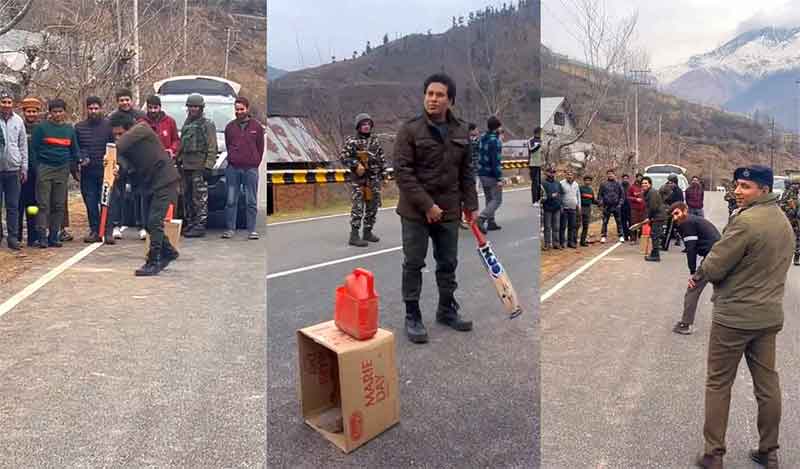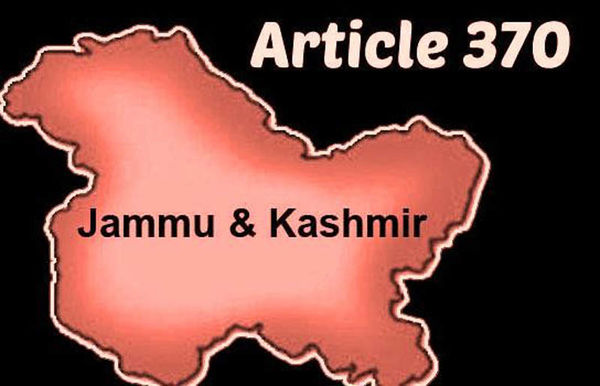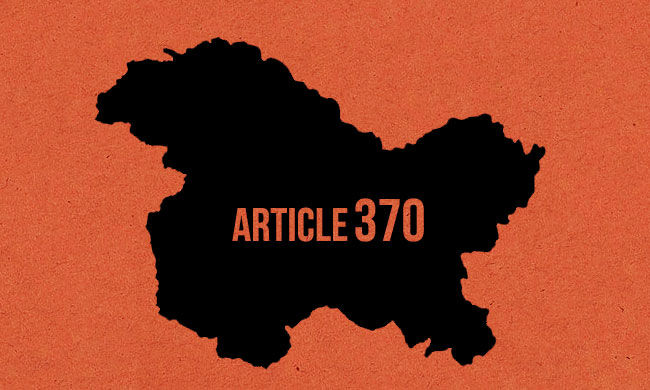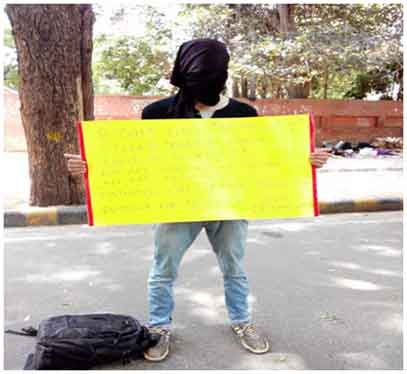
I have never overcome the nightmare of those scenes of the early 1990s when the Indian soldiers had laid pre-dawn siege to our neighbourhood one day. The soldiers had their fingers on triggers ready to shoot anybody not following their orders. Our house, which was in the lap of a green pasture, was surrounded by countless soldiers.
More military convoys were descending from the mountains of Kohi- Soleiman (also called Shankar Acharaya) towards plains like ants. Soon, the call to prayer from the mosque was replaced by an announcement, the caller was commanding that all men, young and children should come out of their houses and gather in the courtyard of the mosque whereas women should stay outside their houses. We had to leave our houses and stay outside in the sub-zero temperature of mid-January.
When my father, brother-in-law, and sixteen-year-old nephew raised their arms in hands up position and walked out of the door, the soldiers directed them to join a long queue of the people. They were all driven to the mosque, where they had to go through an identification parade for about eighteen hours without a sip of water, a morsel of food, or using the toilet.
This was the first security crackdown in my neighbourhood during which three members of my family were taken to the detention centre after an identification parade. They were kept in a notorious interrogation centre of ‘Papa2’. We, all, girls and women were left alone in our house for many days. The only thing we could do was to scream and cry while watching through the cracks of the windows the running of the heavy boots and shouting in fury over our shadows.
So many crackdowns and search operations were carried out in my neighbourhood that it was not only difficult but impossible to count them. Sometimes, one group of soldiers were not even finished ransacking our stores of rice and other stocks that another flock would follow soon; leaving us homeless for many nights, no matter it was harsh winter or scorching heat.
In every crackdown, Kashmiris had to go through beatings, humiliation, arrests, or torture, and women had to spend hours outside the house waiting to see if their children, husband, son, or father would return alive or dead. In one of the search operations, four youths were arrested in a two-day-long crackdown in my neighbourhood and taken to the interrogation centre after arresting them. The next day, morning worshipers found their mutilated bodies in the courtyard of the mosque. I can never forget the day that had left me scarred and bruised for the rest of my life. Remembering that day brings chills through my spine even after three decades. I have seen tears drying in the eyes of their mothers who have become numb and lifeless like a stone.
It was at this time that I had begun my career in journalism but I did not dare to describe the gravity or the magnitude of the volatile situation. I had to become one of the victims of my ambition and had to juggle around the dangerous web that had become Kashmir- the heaven on earth.
The military crackdowns, massacres, and growth of torture cells continued during the three-decade-old armed movement until a decade ago the incidence of getting off the buses and going through the search has eased a bit. Gathering of thousands of men or the identification parades in the squares or fields ended, searching of student dormitories by entering educational institutions, or stripping everybody before going to most of the offices stopped: though, military presence, police searches, or the security bunkers outside each office have never ceased to exist.
Then, on 5th August 2019, Jammu and Kashmir turned into a big jail after stripping of its semi-autonomous status by the BJP government in Delhi.
Who would have predicted that a few days ago, two policemen in Barzulla would be attacked by a “gunman” hiding his gun in his traditional dress, Pheran, after which the crackdown of the 1990s, which had terrorized the majority of the population, would resume? It has left such a deep impression that even today our children, who were born in that era; continue to run wild at night with fear and sweat and dread the sight of a soldier. The return of the same terror tactics will eat another generation now.
You may have recently seen viral videos of long queues of people on social media as soldiers stripping and searching them, looking at their ID cards, and asking questions such as ‘Where do you come from and where do you go?’ Only then do they get permission to leave and thank God for reaching home in one piece.
For the past few days, buses, cars, and other passenger vehicles have been stopped on the roads, mainly in city centres and other areas, where people are asked to line up, take off their clothes and then soldiers take hours to search them. This is another tool to humiliate and cripple the local population of Jammu and Kashmir who are not even allowed to speak against the atrocities carried under the pretext of dealing with “terrorism”.
Some Hindutva leaders have demanded a ban on the wearing of traditional ‘pheran’ by Kashmiri people who mostly wear them in extremely cold weather where due to lack of electricity a kangri is kept inside the pheran that resembles a small heater.
Electricity generated from hydropower projects in Jammu and Kashmir is supplied to northern India while the locals are facing severe scarcity. That is another tragedy of Kashmir, robbing them of their own resources.
If Kashmiris do not wear pheran, they will not be able to use kangri. That could result in the loss of life due to severe cold.
Pheran is not a fashion; it is a necessity and has been the dress of Kashmiris for centuries, Hindus and Muslims. Now if some BJP officials think that taking off the Pheran of Kashmiris can overcome the current turmoil in Kashmir and people would give up their demands for their political rights, what could be more foolish than that?
As the poet says, ‘this is a chair only, not your coffin. If you can’t do anything, why don’t you give up? The BJP’s decision on 5th August 2019 was justified that peace would prevail in Jammu and Kashmir, the development would accelerate, milk canals would flow and an environment would be created to make it a real paradise on earth. So far this dream has proved to be a mirage that has made the situation in Kashmir even more chaotic and violent.
It would have been better if the August 5 decision-makers had decided to step down morally by acknowledging their failure and atonement for their sins by apologizing to this poor nation. On the contrary, such conditions are created that the entire Kashmiri nation is so paralyzed mentally and physically that it is deprived of the ability to breathe. The land, the house, the flag, the identity, the language, and the constitution have already been robbed. One billion people of India need to understand the volatility of the Kashmir and formulate a strategy to support JK in its fight for existence, restore the rights and identity of people or it might have serious repercussions on the rest of the country if Hindutva is not stopped to further its agenda.
Nayeema Ahmad Mahjoor is an ex-editor of BBC Urdu and Penguin author
GET COUNTERCURRENTS DAILY NEWSLETTER STRAIGHT TO YOUR INBOX














































